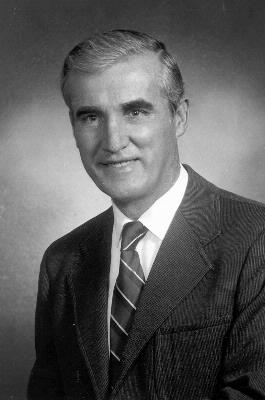John P. Donohue
John P. Donohue was a prominent American urologist known for his significant contributions to the field of urology, particularly in the treatment of testicular cancer. His innovative approaches and dedication to patient care have left a lasting impact on medical practices and patient outcomes.
Early Life and Education
John P. Donohue was born in New York City. He pursued his undergraduate studies at Fordham University, where he developed an interest in medicine. He later attended Cornell University Medical College, earning his medical degree. Following his graduation, Donohue completed his residency in urology at the University of Minnesota.
Career
Donohue began his professional career at the Indiana University School of Medicine, where he quickly rose to prominence. He was instrumental in developing new surgical techniques for the treatment of testicular cancer, significantly improving survival rates for patients. His work in retroperitoneal lymph node dissection (RPLND) became a standard procedure in the management of testicular cancer.
Contributions to Urology
John P. Donohue's contributions to urology are vast. He published numerous articles and research papers on the subject, sharing his findings and techniques with the medical community. His work has been recognized with several awards and honors, including the prestigious American Urological Association's Hugh Hampton Young Award.
Legacy
Donohue's legacy in the field of urology is marked by his commitment to advancing medical knowledge and improving patient care. His innovative surgical techniques and dedication to research have saved countless lives and continue to influence the practice of urology today.
Personal Life
John P. Donohue was married and had children. He was known for his compassionate nature and dedication to his family and patients. He passed away in year.
See Also
- Urology
- Testicular cancer
- Retroperitoneal lymph node dissection
- Indiana University School of Medicine
- American Urological Association
References
External Links
Transform your life with W8MD's budget GLP-1 injections from $125.
W8MD offers a medical weight loss program to lose weight in Philadelphia. Our physician-supervised medical weight loss provides:
- Most insurances accepted or discounted self-pay rates. We will obtain insurance prior authorizations if needed.
- Generic GLP1 weight loss injections from $125 for the starting dose.
- Also offer prescription weight loss medications including Phentermine, Qsymia, Diethylpropion, Contrave etc.
NYC weight loss doctor appointments
Start your NYC weight loss journey today at our NYC medical weight loss and Philadelphia medical weight loss clinics.
- Call 718-946-5500 to lose weight in NYC or for medical weight loss in Philadelphia 215-676-2334.
- Tags:NYC medical weight loss, Philadelphia lose weight Zepbound NYC, Budget GLP1 weight loss injections, Wegovy Philadelphia, Wegovy NYC, Philadelphia medical weight loss, Brookly weight loss and Wegovy NYC
|
WikiMD's Wellness Encyclopedia |
| Let Food Be Thy Medicine Medicine Thy Food - Hippocrates |
Medical Disclaimer: WikiMD is not a substitute for professional medical advice. The information on WikiMD is provided as an information resource only, may be incorrect, outdated or misleading, and is not to be used or relied on for any diagnostic or treatment purposes. Please consult your health care provider before making any healthcare decisions or for guidance about a specific medical condition. WikiMD expressly disclaims responsibility, and shall have no liability, for any damages, loss, injury, or liability whatsoever suffered as a result of your reliance on the information contained in this site. By visiting this site you agree to the foregoing terms and conditions, which may from time to time be changed or supplemented by WikiMD. If you do not agree to the foregoing terms and conditions, you should not enter or use this site. See full disclaimer.
Credits:Most images are courtesy of Wikimedia commons, and templates, categories Wikipedia, licensed under CC BY SA or similar.
Contributors: Prab R. Tumpati, MD

